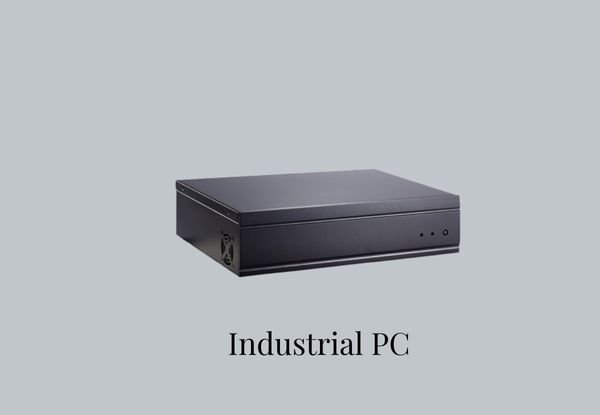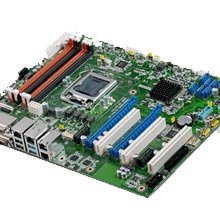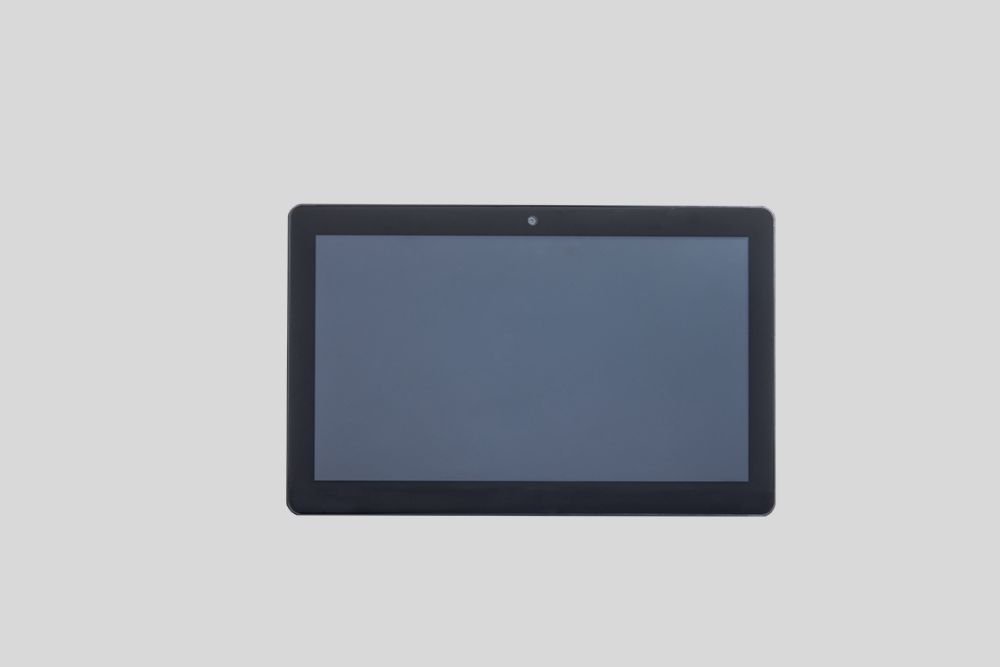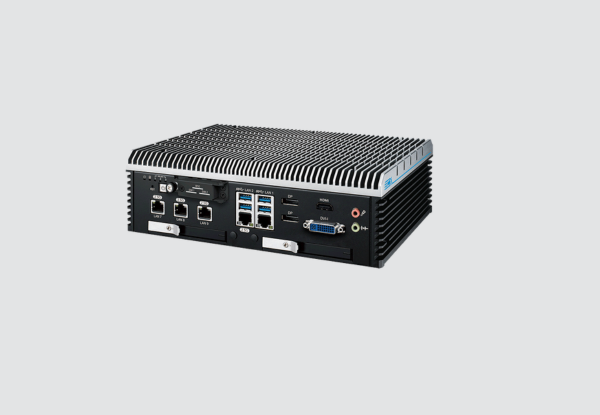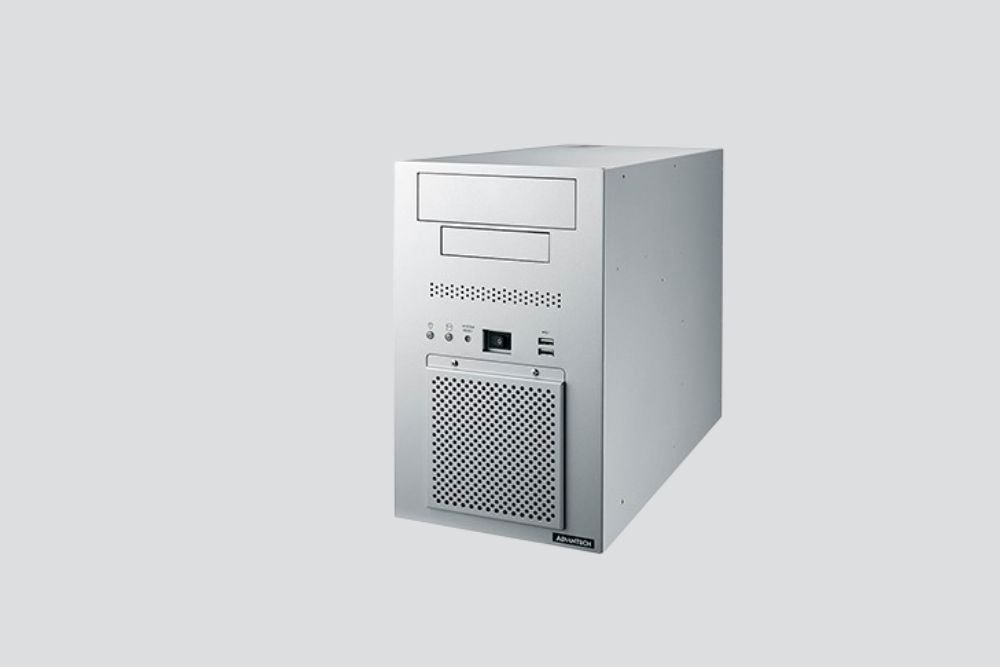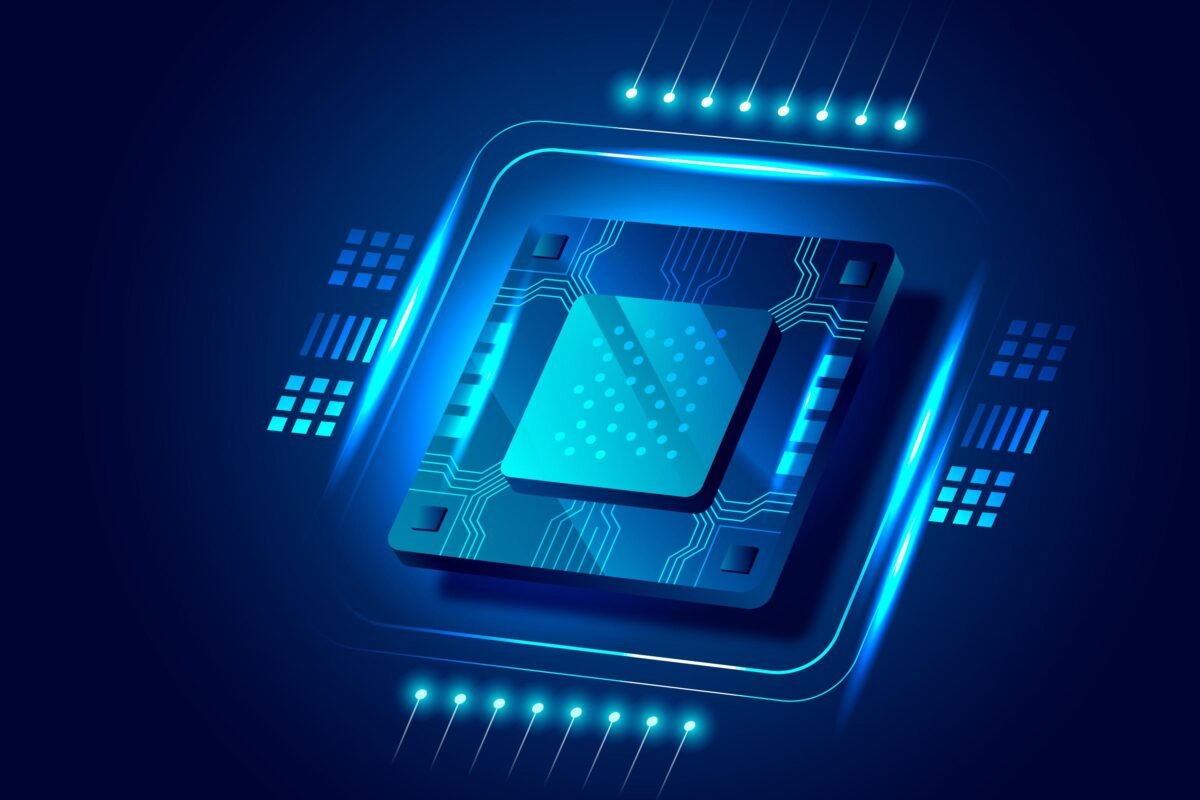1: Introduction
Industrial PCs play a pivotal role in modern manufacturing by providing robust, efficient, and reliable computing solutions tailored to demanding industrial environments. These specialized industrial computers are designed to withstand harsh conditions while delivering consistent performance, making them a critical component in enhancing quality control processes.
Quality control in manufacturing relies heavily on accurate, real-time insights. By integrating real-time data and AI-driven analytics, businesses can identify and address potential issues promptly, reducing errors, improving efficiency, and maintaining high standards. The combination of Industrial PCs with advanced technologies such as Panel PCs and solutions from leading brands like Advantech Industrial PC provides manufacturers with the tools needed to thrive in a competitive landscape.
Stay tuned to explore how these technologies transform manufacturing and help maintain a competitive edge in quality control.
2: Understanding Industrial PCs in Manufacturing
Industrial PCs are high-performance computing systems built to meet the rigorous demands of industrial environments. Unlike traditional computers, they are engineered for durability, featuring robust hardware that can withstand extreme temperatures, dust, vibration, and continuous operation. With compact designs, such as Panel PCs, and versatile configurations, they cater to diverse manufacturing needs.
Key Features of Industrial PCs
- Rugged Design: Resistant to harsh environmental factors, ensuring reliable performance.
- Real-Time Processing: Capable of managing and analyzing data instantly to support quick decision-making.
- Customizability: Tailored configurations to suit specific industrial requirements.
- Connectivity: Seamless integration with IoT devices and sensors for enhanced data collection and communication.
Role in Automation and Data Management
In manufacturing, industrial PCs serve as the backbone of automation systems, controlling machinery, monitoring production lines, and managing workflows. Their integration with sensors and IoT devices enables precise data collection and storage. This data is further analyzed by AI algorithms to identify patterns and optimize processes, ultimately improving quality control.
Applications in Quality Control
- Defect Detection: AI-powered industrial PCs analyze real-time visual and sensor data to detect defects during production.
- Predictive Maintenance: By monitoring equipment conditions, industrial computers help prevent unexpected downtimes.
- Process Optimization: Leveraging real-time insights, manufacturers can fine-tune operations to reduce waste and ensure consistent product quality.
Prominent providers like Global Infotech Solutions and best industrial computer manufacturers deliver advanced systems, including Advantech Industrial PC, designed for seamless integration into quality control processes.
These features and applications highlight how industrial PCs are transforming manufacturing by providing accuracy, efficiency, and reliability in quality control operations.
3: Real-Time Data in Quality Control
What Is Real-Time Data and Why Is It Crucial in Manufacturing?
Real-time data refers to information collected and processed as events occur, providing up-to-the-minute insights into manufacturing operations. This immediacy is critical in production environments, where delays in identifying or addressing issues can lead to significant losses in time, materials, and quality. For manufacturing, real-time data is the foundation of proactive decision-making, allowing for swift responses to anomalies and continuous process improvements.
How Industrial PCs Enable Real-Time Data Utilization
Industrial PCs, including models like Panel PCs, are integral to the real-time data ecosystem in manufacturing. Their ability to process vast amounts of data rapidly and reliably ensures seamless monitoring and analysis across production lines.
- Data Collection: Equipped with multiple input/output ports, industrial computers connect to IoT sensors and devices, gathering precise, up-to-date information.
- Data Analysis: Advanced systems, such as those offered by Advantech Industrial PC, leverage powerful processors and software to process data in milliseconds.
- Application: The insights derived can trigger automated adjustments in machinery, highlight deviations from quality standards, or prompt immediate action by operators.
Benefits of Real-Time Data in Quality Control
- Proactive Issue Resolution: Real-time alerts enable manufacturers to address defects or inefficiencies before they escalate.
- Improved Product Quality: Continuous monitoring ensures that production stays aligned with quality standards, reducing errors.
- Operational Efficiency: Streamlined data flow minimizes waste and downtime, optimizing resource utilization.
- Predictive Insights: Real-time data supports AI-driven models to forecast equipment needs, preventing potential failures.
With solutions from industry leaders like Global Infotech Solutions and best industrial computer manufacturers, manufacturers can fully harness the power of real-time data for enhanced quality control. These systems not only boost operational efficiency but also ensure a consistent standard of excellence in products.
4: Integrating AI with Industrial PCs for Enhanced Quality Control
The Role of AI in Analyzing Real-Time Data
Artificial Intelligence (AI) enhances the functionality of industrial PCs by analyzing vast amounts of real-time data to identify patterns and trends that may not be immediately apparent to human operators. This capability allows manufacturers to uncover inefficiencies, predict potential issues, and make informed decisions that optimize quality control processes.
AI-equipped industrial computers excel in:
- Pattern Recognition: Identifying deviations in product specifications during production.
- Anomaly Detection: Spotting irregularities in equipment behavior or performance that could indicate potential failures.
- Data-Driven Insights: Transforming raw data into actionable strategies for maintaining production standards.
AI Algorithms for Predictive Maintenance, Defect Detection, and Process Optimization
- Predictive Maintenance:
AI algorithms analyze machine data to predict equipment wear and tear, allowing maintenance teams to intervene before breakdowns occur. This reduces downtime and ensures smooth production. - Defect Detection:
By integrating AI-powered vision systems with Panel PCs, manufacturers can detect defects in real-time, even on high-speed production lines. These systems ensure that substandard products are identified and removed quickly. - Process Optimization:
AI evaluates historical and real-time data to fine-tune production parameters, enhancing efficiency and reducing material wastage. For instance, Advantech Industrial PCs use AI to optimize assembly line speeds and material usage without compromising product quality.
Automating Decision-Making for Accuracy
AI integration with industrial PCs enables automation of routine quality control decisions, improving speed and accuracy:
- Automatic Adjustments: AI systems can recalibrate machinery in real-time to correct deviations, ensuring consistent product standards.
- Smart Notifications: Operators receive actionable alerts only for critical issues, reducing information overload.
- Root Cause Analysis: AI pinpoints the underlying causes of recurring issues, streamlining problem-solving efforts.
Leaders in industrial computing, such as Global Infotech Solutions, offer advanced AI-compatible industrial computers, empowering manufacturers to achieve greater precision and reliability in their quality control processes. This synergy of AI and industrial PCs creates a smarter, more resilient manufacturing ecosystem.
5: Key Benefits of Real-Time Data and AI Integration
Increased Production Efficiency and Reduced Downtime
By leveraging industrial PCs integrated with AI, manufacturers achieve seamless operations and minimal interruptions. Real-time monitoring enables swift identification and resolution of bottlenecks, while AI algorithms predict equipment failures, allowing for timely maintenance. This proactive approach minimizes unplanned downtime and ensures steady production flow.
- Industrial computers facilitate automated adjustments to optimize machine performance.
- Predictive maintenance prevents costly breakdowns by addressing issues before they escalate.
Enhanced Product Quality and Consistency
Real-time data collection and AI-powered analysis ensure products consistently meet stringent quality standards. AI detects even the slightest deviations, enabling corrective actions during production rather than post-manufacturing.
- Panel PCs integrate with vision systems to enhance defect detection accuracy.
- Historical data is analyzed to refine processes, ensuring consistency across batches.
For instance, manufacturers using systems like Advantech Industrial PCs report fewer defects and higher customer satisfaction.
Cost Savings Through Early Issue Detection and Predictive Maintenance
Integrating real-time data with AI minimizes waste, reduces operational costs, and enhances profitability. Early detection of defects or equipment malfunctions prevents extensive repairs or rework.
- AI-powered industrial PCs predict component wear, ensuring parts are replaced before failures occur.
- Automation of quality checks reduces labor costs and material wastage.
Companies partnering with leading providers like Global Infotech Solutions benefit from the advanced capabilities of best industrial computer manufacturers, achieving cost-efficient and reliable production outcomes.
By combining real-time data with AI, manufacturers not only optimize their processes but also gain a competitive edge in delivering superior-quality products with greater efficiency.
6: Case Studies: Successful Implementation of AI and Industrial PCs in Quality Control
Here are highly authoritative sources that explain and showcase the implementation of AI and industrial PCs in quality control, including real-world examples and best practices:
- Microsoft AI in Manufacturing
Microsoft provides detailed insights into how AI is transforming quality control processes in manufacturing. The integration of Azure AI with industrial PCs has enabled real-time defect detection, process optimization, and predictive maintenance, leading to significant cost savings and enhanced product quality. Microsoft’s case studies highlight partnerships with manufacturers that achieved measurable improvements in efficiency and precision. Click here More details. - ThirdEye Data Case Study
ThirdEye Data presents a comprehensive example where AI-powered image processing and anomaly detection systems were deployed in the plywood manufacturing industry. The solution utilized high-resolution cameras, TensorFlow, and OpenCV to detect density issues in plywood sheets. This reduced defects and minimized waste by providing real-time feedback to operators. Detailed steps and results of their implementation are described. - Quality Digest Analysis
Quality Digest discusses the transformative role of AI in high-precision manufacturing. By leveraging AI-powered systems integrated with industrial PCs, companies achieved real-time anomaly detection and automated defect resolution. These systems enhanced the accuracy and reliability of quality control processes in industries like aerospace and electronics. This resource provides both an overview of AI’s benefits and insights into specific tools and strategies. Learn more.
Each of these sources offers detailed examples and actionable strategies for successfully implementing AI with industrial PCs in quality control. They reflect the growing trend of automating manufacturing processes to improve efficiency, reduce human error, and achieve higher-quality outcomes.
7: Challenges and Considerations
Integrating AI with industrial PCs in manufacturing, especially for quality control, presents a range of challenges that need careful consideration and strategic implementation. Companies must navigate potential data security risks, ensure compatibility with existing systems, and address operational disruptions during integration. Below are key considerations and best practices for successful implementation:
Challenges in AI Integration with Industrial PCs:
- Data Security: AI systems rely on large volumes of data to function efficiently, but integrating these systems into existing industrial PCs can expose vulnerabilities. Ensuring that sensitive operational data is secured through encryption and robust cybersecurity protocols is crucial to protect intellectual property and prevent breaches.
- System Compatibility: Industrial PCs often run legacy software and hardware that may not be directly compatible with modern AI algorithms or frameworks. Integrating AI solutions may require significant upgrades to hardware or software, which can be costly and time-consuming. Compatibility issues can arise, especially in environments with outdated systems.
- Complexity of AI Solutions: AI solutions, particularly in quality control, involve complex algorithms that require substantial computational power and real-time processing. Ensuring that industrial PCs can handle these demanding tasks without compromising the efficiency of existing processes is a challenge.
Overcoming These Challenges:
- Data Security: Implementing robust cybersecurity measures like firewalls, secure data transmission protocols, and regular system audits can safeguard against potential threats. It’s also advisable to use AI technologies that have built-in security features.
- System Compatibility: Using middleware or adopting modular AI solutions that are designed to work across various industrial environments can ease integration. For example, using AI software that is compatible with existing vision systems or that can be deployed on cloud platforms helps reduce hardware dependency.
- Seamless AI Deployment: Adopting AI solutions that can scale across multiple processes without disrupting operations is critical. As demonstrated in case studies like ThirdEye’s AI system for detecting plywood sheet defects, companies that implement AI-based visual inspection systems typically see improvements in accuracy and reduced manual intervention.
Best Practices for Smooth Integration:
- Pilot Testing: Conducting pilot programs allows businesses to assess the performance of AI systems before full deployment. This helps identify issues early, ensuring that integration is smooth and efficient.
- Training and Upskilling Staff: To make the most of AI systems, companies should invest in training their workforce to work alongside AI technologies. This ensures that the integration process is more seamless, and employees can adapt to new technologies.
- Continuous Monitoring and Updates: AI systems, especially in quality control, need to be continually monitored and updated. Regular updates ensure that the AI models remain effective, especially as product lines or production environments evolve.
For further details on how companies have successfully integrated AI with industrial PCs, you can explore case studies from providers like LandingAI and ThirdEye.
8: The Future of Quality Control: AI, Industrial PCs, and Beyond
The future of quality control is being shaped by the integration of Artificial Intelligence (AI) and industrial PCs, along with other emerging technologies. With advancements in AI, especially in machine learning and real-time data processing, the manufacturing landscape is set to undergo a significant transformation.
AI is increasingly being used to automate processes that were traditionally handled manually, improving speed and accuracy in quality control. For instance, machine learning algorithms can now predict defects, optimize manufacturing processes, and enable predictive maintenance—reducing downtime and improving efficiency.
In parallel, industrial PCs, which are specifically designed to withstand harsh manufacturing environments, are becoming critical for handling the vast amounts of data generated in real-time. These computers are often equipped with advanced processing capabilities and can integrate seamlessly with AI systems to enhance decision-making processes.
Looking to the future, the combination of industrial PCs with AI and other Industry 4.0 technologies promises even greater benefits. One significant trend is the increasing use of data-driven decision-making. By leveraging real-time data, AI systems can detect anomalies early, allowing manufacturers to address potential issues before they escalate.
Additionally, AI’s ability to simulate scenarios and train quality control staff will foster a deeper understanding of quality issues, promoting a culture of continuous improvement.
Ultimately, as AI continues to evolve, it will likely play an even more prominent role in driving manufacturing efficiencies. AI and industrial PCs will not only improve product quality but also make operations more transparent and accountable, leading to better decision-making at all levels.
9: Conclusion
integrating real-time data and AI into quality control processes offers significant advantages for modern manufacturing. By utilizing industrial PCs, businesses can ensure that real-time data is effectively captured, analyzed, and applied for smarter decision-making, leading to better product quality, optimized operations, and reduced downtime. The role of AI in identifying patterns and predictive maintenance further enhances these capabilities, making quality control more proactive rather than reactive.
As businesses continue to embrace these technological advancements, the future of quality control looks bright, with AI and industrial PCs set to drive greater efficiency and accuracy. Companies that adopt AI-powered industrial PCs are better positioned to stay ahead in the competitive manufacturing landscape.
We encourage businesses to explore the potential of AI and industrial PCs to elevate their quality control systems. Embracing this technology can lead to more streamlined operations and greater product reliability, positioning your business for success in an increasingly automated world.

